ARIA Awards 2023: Genesis Owusu continues the ascent of Australian hip-hop
Australian hip-hop was once maligned but is now celebrated in the record industry, with Genesis Owusu taking home three more ARIA Awards on Wednesday. | FULL WINNERS LIST
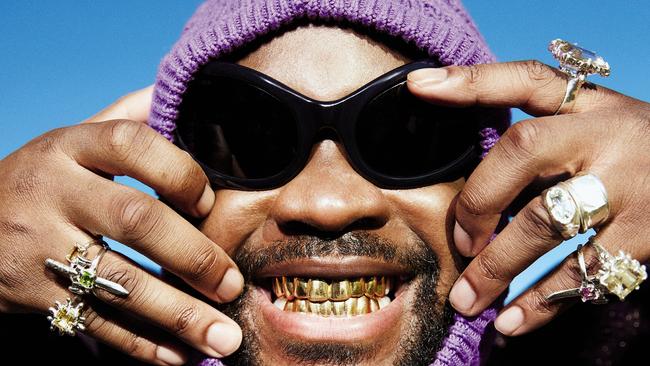
In all manner of human industry, awards ceremonies come and go. Sometimes, even while you’re sitting in a room and listening to the grateful recipients make their heartfelt speeches of thanks, you can feel the particulars of these gatherings slipping past memory into deep history.
With 21 years’ hindsight, the ARIA Awards of 2002 are chiefly remembered for the two biggest winners in Kasey Chambers and Silverchair.
They each took home five awards from seven nominations, including album of the year for country musician Chambers and her second LP, titled Barricades & Brickwalls.
As well, best group went to the Newcastle rock trio, whose frontman Daniel Johns returned to the stage to perform with his Silverchair bandmates after overcoming a crippling battle with reactive arthritis.
Established names aside, though – and not to discount the work of the other artists who took home awards, including Kylie Minogue, Alex Lloyd and The Vines – the one truly surprising winner in 2002 was 1200 Techniques, a name that was largely unknown until that night.
The underground hip-hop group from Melbourne snagged two trophies – best independent release and best video for a single titled Karma – and helped put the genre on the map in a room full of record industry workers and the broadcast TV audience at home.
While he stood at the award-winners’ podium beside his two bandmates – brothers Jason Foretti (aka DJ Peril) and Simon Foretti (guitarist Kemstar) – MC N’fa Jones bent his tall frame down to the microphone and made a powerfully prescient statement.
“There’s a huge underground movement – independent – going on around this country,” said the rapper. “Keep your ears open for it.”
Before the trio left the stage, DJ Peril took a moment to raise his left fist skyward and make a proud announcement on behalf of his peers: “Australian hip-hop, baby!”
To that point in the nation’s music history, the genre had been ignored and written off by much of the record industry as niche and non-commercial.
Fat chance, reckoned the executives, that so-called “Skip-hop” fans would buy enough singles or albums to recoup any capital investment labels made in rappers, DJs and producers.
Fat chance, they thought, that people would buy tickets to their concerts, or wear these artists’ merchandise, or even be willing to publicly admit to a fondness for the Australian flavour of this decidedly American art form, which burst out of New York City circa 1973.
Recalling that night at the ARIAs in an interview with The Australian this week, Jones said, “We were definitely there to represent hip-hop, and not be like, ‘Hey, look at us, it’s just us’ – no, (it was a case of) ‘We’re here and we’re staying here. You need to make some room.’”
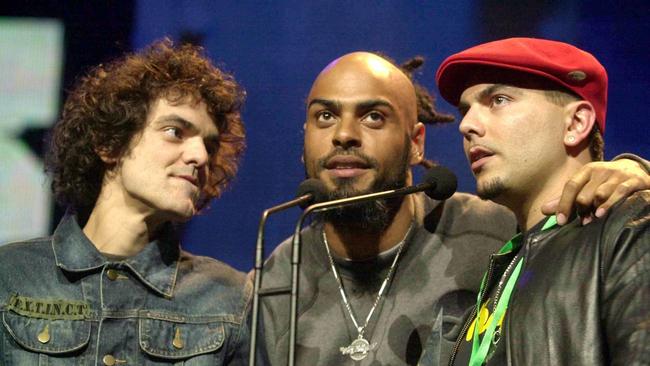
It was fitting that the first Australian hip-hop act to win an ARIA Award was an independent act, signed to Rubber Records. Back then, it could be no other way.
For major record labels and their talent scouts, the notion of signing Australian hip-hop artists was generally seen as a risky bridge too far.
Yet while the genre’s performers and their nascent fanbase were firmly entrenched as outsiders, 1200 Techniques had an eye on changing that.
More than two decades ago, Jones and the Foretti brothers knew the inclusive potential of Australian hip-hop even as they battled the slights, snubs and abiding indifference to their art.
Midway through their award-winning song Karma – an electric-guitar led earworm whose lyrics centred on retaining optimism in the face of negativity – they spoke directly of building bridges from the nation’s metropolitan extremities, linking fans through this upbeat, propulsive music.
“Melbourne / Sydney / To Brisbane / And Darwin,” rapped Jones. “To Perth / Adelaide / Tassie / And all across the O-Z-Z-I-E.”
Not long ago, my ears pricked up while shopping in Coles: to my surprise, playing through the overhead speakers was Tied Up!, a strutting single from Genesis Owusu’s second album, titled Struggler.
For the Ghanaian-Australian hip-hop artist born Kofi Owusu-Ansah, 25, Struggler arrived with no small amount of anticipation from both his fans and the wider Australian record industry.
In 2021, Owusu had surprised many in the sector by winning four ARIA Awards, including album of the year for his debut, a genre-hopping concept album titled Smiling With No Teeth.
This year, Owusu led the ARIA finalists by racking up seven nominations for Struggler. On Wednesday, he won another three awards in major categories: album of the year, best hip-hop release and best independent release.
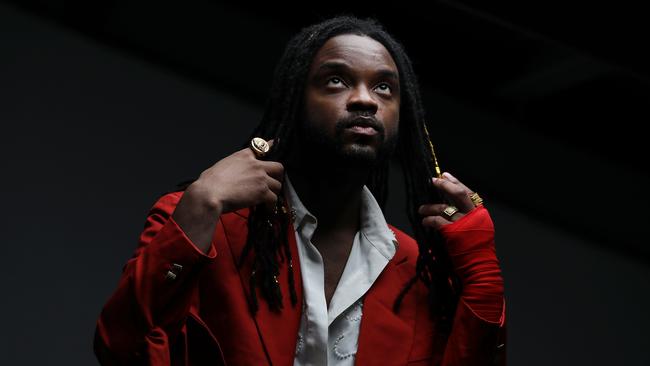
That snippet I happened to hear in a supermarket stopped me in my tracks and put a smile on my face, for it was a small moment that contained multitudes.
It echoed all the way back to 1200 Techniques’ ARIA wins, and all the small steps that had been taken by Australian hip-hop performers in the lead-up to that leap to the award-winners’ podium in 2002.
Back then, the genre was entirely underground: today, all you need to do is keep your ears open for it while you’re browsing for breakfast cereal.
Ahead of the awards ceremony on Wednesday, N’fa Jones spoke admiringly of his younger peer.
“Seven nominations is wild,” said Jones of Owusu. “It’s awesome. He’s flying the flag for Australia; he’s flying the flag for multiculturalism and African-Australians. For myself, being African-Australian, I always imagined seeing younger artists coming up, because there weren’t many around when I was doing my thing.”
“To see him doing so well is great,” said Jones, 44. “It’s really cool to see hip-hop artists being nominated beyond hip-hop; just being nominated for being a dope artist. That’s the goal.”
True enough, one of Owusu’s seven nominations was for best solo artist – a category that was won on the night by pop singer-songwriter Troye Sivan.
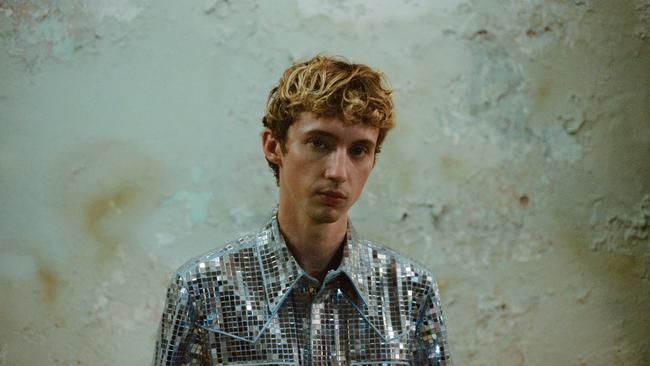
The four-award haul for Sivan, 28, was completed by winning public-voted song of the year (for Rush), and two artisan awards for the engineering and production work on Rush by his collaborator Styalz Fuego, aka Melbourne-based producer and songwriter Kaelyn Behr.
As Jones pointed out, though, for hip-hop performers to be in the conversation for their pure artistry outside genre boundaries shows how far things have come in the past 21 years.
In fact, since ARIA introduced the best solo artist category in 2021 – after doing away with the gendered separation for the best male and female artists – the award has been won by two hip-hop performers in The Kid Laroi, who shared it with Justin Bieber in 2021, and Baker Boy last year.
Laroi, the 20-year-old Sydney-raised artist born Charlton Howard, is another who has made gigantic strides in a short time frame.
Last year, his debut headline tour filled arenas around the country, marking a triumphant homecoming for the Los Angeles-based rapper and singer.
As announced earlier this week, next year The Kid Laroi will upgrade his itinerary to meet demand by booking the biggest concert venues available.
As it happens, too, Laroi’s itinerary will see him performing in most of the cities name-checked in the 1200 Techniques song Karma: starting February 2 at Melbourne’s AAMI Park, he’ll also play to stadium-sized crowds in Perth, Adelaide and Sydney, before ending at the Gold Coast on February 18.

The notion of standing on the shoulders of giants has been used and abused almost long enough to move beyond cliche into a lamentable trope, but as two of the leading lights of Australian hip-hop working today, Owusu and Laroi are surely doing just that.
It’s fitting, too, that for the past few years, Owusu’s concerts have tended to begin with something similar to that famous metaphor.
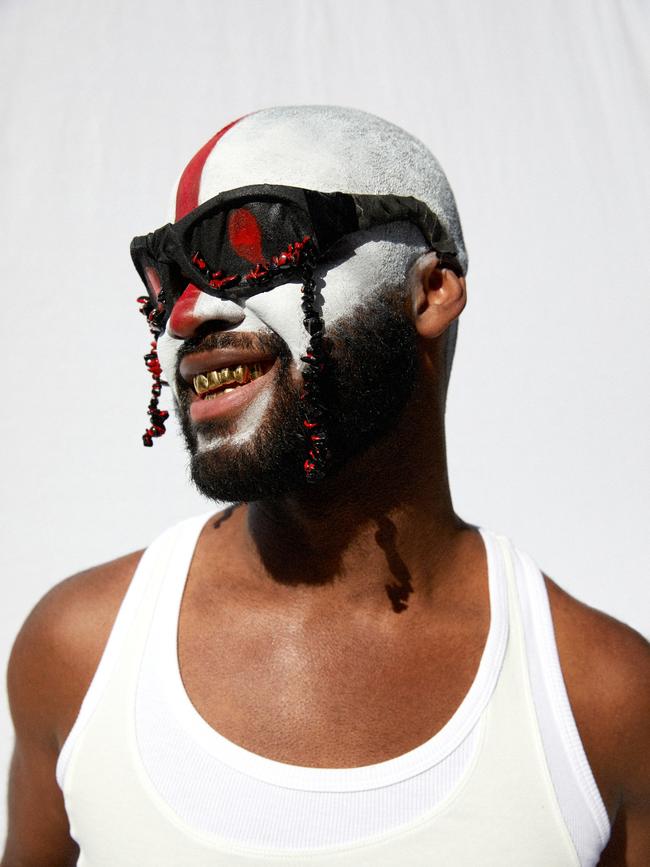
Wearing a long cape and sunglasses, Owusu is chaired onto the stage; he is literally carried on the shoulders of his fellow performers, who he lovingly dubs his “goons”.
The effect is highly unusual; part of the fun of repeat viewings of Owusu in the live arena is taking a friend along to watch their pure surprise when they see this giant, caped figure being led out like a royal carriage, towering above the crowd at a height of two metres or more.
As well, this eye-catching entrance shows the thought the artist has given to innovating within his stagecraft, all while still in the first few years of his career.
Given his rapid ascent from anonymity to the very centre of popular music in Australia, it’s hard to think of a more apt image than that of a performer who appears to be much taller than the average man.
With his newest collection of ARIA Awards earned on Wednesday, though, Owusu has reinforced both his own artistry and the cultural staying power of the once-maligned, now-celebrated genre to which he proudly belongs.
2023 ARIA AWARD WINNERS:
ALBUM OF THE YEAR
Genesis Owusu – Struggler (OURNESS/AWAL RECORDINGS)
BEST SOLO ARTIST
Troye Sivan – Rush (EMI Music Australia)
BEST GROUP
DMA’S – How Many Dreams? (I OH YOU/Mushroom)
MICHAEL GUDINKSI BREAKTHROUGH ARTIST
Teenage Dads – Midnight Driving (Chugg Music/MGM)
BEST POP RELEASE
Kylie Minogue – Padam Padam (Liberator Music/Mushroom)
BEST DANCE/ELECTRONIC RELEASE
MK and Dom Dolla – Rhyme Dust (Area 10/Big On Blue/Sony Music UK)
BEST HIP HOP / RAP RELEASE
Genesis Owusu – Struggler (OURNESS/AWAL RECORDINGS)
BEST SOUL / R&B RELEASE
Forest Claudette – Mess Around (feat. EARTHGANG) (Sony Music)
BEST INDEPENDENT RELEASE
Genesis Owusu – Struggler (OURNESS/AWAL RECORDINGS)
BEST ROCK ALBUM
King Gizzard & The Lizard Wizard – Ice, Death, Planets, Lungs, Mushroom and Lava (Virgin Music Australia)
BEST ADULT CONTEMPORARY ALBUM
Dan Sultan – Dan Sultan (Liberation Records/ Mushroom)
BEST COUNTRY ALBUM
Fanny Lumsden – Hey Dawn (Cooking Vinyl Australia/The Orchard)
BEST HARD ROCK / HEAVY METLA ALBUM
Parkway Drive – Darker Still (Parkway Records/Cooking Vinyl Australia)
BEST BLUES & ROOTS ALBUM
The Teskey Brothers – The Winding Way (Ivy League Records/Mushroom Group)
BEST CHILDREN’S ALBUM
Emma Memma – Emma Memma (GYROstream)
Public voted awards
Best video
Good Enough – G Flip, Kyle Caulfield (Future Classic)
Best Australian Live Act
G Flip – Drummer Australian Tour (Future Classic)
Song of the Year
Troye Sivan – Rush (EMI Music Australia)
Most Popular International Artist
Taylor Swift – Midnights (Universal Records USA/Universal Music Australia)
ARIA Music Teacher Award
Sue Lowry – Southport Special School, Yugambeh Country, Gold Coast, QLD
Artisan awards
Best Cover Art
Jeremy Koren (Grey Ghost) and Michelle Grace Hunder – Everything Was Green – Forest Claudette (Sony Music)
Engineer – Best Engineered Release
Styalz Fuego for Troye Sivan – Rush (EMI Music Australia)
Producer – Best Produced Release
Styalz Fuego for Troye Sivan – Rush (EMI Music Australia)
Fine arts awards
Best Classical Album
Australian Chamber Orchestra/Richard Tognetti – Indies & Idols (ABC Classic/The Orchard)
Best Jazz Album
The Vampires featuring Chris Abrahams – Nightjar (Earshift/Planet)
Best Original Soundtrack or Musical Theatre Cast Album
Various Artists – John Farnham: Finding The Voice (Music From The Feature Documentary) (Wheatley Records/Sony Music)
Best World Music Album
Joseph Tawadros – Those Who Came Before Us (Independent/The Planet Company)






To join the conversation, please log in. Don't have an account? Register
Join the conversation, you are commenting as Logout